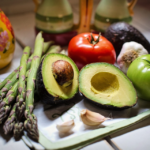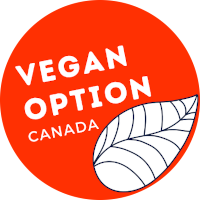
Petition: Establishment of a vegan meal option in Ontario’s public cafeterias
To: The Legislative Assembly of Ontario

- The newly-released revised version of Canada’s Food Guide encourages Canadians to focus on choosing plant-based sources of protein as well as foods that contain mostly unsaturated fat (as opposed to foods that contain mostly saturated fat). Fortified plant-based milk is also mentioned as a healthy option.
- A vegan diet has been proven to lower the risk of heart disease, cancer and type 2 diabetes.
- According to Dietitians of Canada, “Vegans have lower rates of heart disease, diabetes and certain types of cancer than non-vegans. Vegans also have lower blood pressure levels than both meat-eaters and vegetarians and are less likely to be overweight.”
- A healthy eating pattern is important to help children and adults feel good, maintain their health and meet their nutritional needs.
- It has been proven that children can learn better while eating the right kinds of foods by keeping their blood sugar levels regular.
- People who follow a healthy diet do not get sick as often.
- A vegan diet is the best way to reduce our ecological footprint.
- In recent years, many Canadians have been choosing a plant-based diet or vegan lifestyle for a variety of reasons, such as to reduce their environmental footprint, to protect animals, and to improve their own health.
- When there are no vegan options available in public institutions such as hospitals, schools, and prisons, children and adults who lead a vegan lifestyle are forced to not eat at all or to eat an incomplete meal (such as a plain salad or a piece of bread). In some cases, they may feel forced to choose to eat a non-vegan meal. Either way, this situation is detrimental to their physical and psychological well-being, a violation of their rights, and harmful to animals and the environment.
- We, the public, can all benefit from having vegan options available to us in public institutions such as schools, daycares, seniors’ homes, hospitals, prisons and universities.
- Veganism is considered a creed and a lifestyle. Our human rights are violated under the Charter of Rights and Freedoms when we are not presented with a vegan option in a public institution. We have the right to eat and to the right to live in accordance with our ethical beliefs.
- In Portugal, a vegan option is legally required to be provided in all public canteens, including schools, universities, prisons and hospitals.
We, the undersigned citizens of Ontario, call upon the Government of Ontario and all Members of the Legislative Assembly of Ontario to support the requirement of public canteens and foodservice under provincial jurisdiction to provide access to a vegan option. We also request promoting this legislative change and working with provincial public institutions to enable access to this service for the public.
Dernières Signatures
| 400 | Carmela A. | Jun 07, 2023 |
| 399 | Seema B. | Jun 04, 2023 |
| 398 | I. v. | Jun 03, 2023 |
| 397 | Mariam s. | May 22, 2023 |
| 396 | Heidi H. | May 19, 2023 |
| 395 | Gemma I. | May 12, 2023 |
| 394 | Caterina N. | Apr 25, 2023 |
| 393 | Linsey F. | Apr 22, 2023 |
| 392 | Melva A. | Apr 19, 2023 |
| 391 | Shirin I. | Apr 18, 2023 |
| 390 | diana k. | Apr 13, 2023 |
| 389 | Pat L. | Apr 01, 2023 |
| 388 | Sandy M. | Feb 22, 2023 |
| 387 | Danica h. | Dec 17, 2022 |
| 386 | Scott J. | Oct 16, 2022 |
| 385 | Jordan G. | Oct 11, 2022 |
| 384 | Liz M. | Jun 20, 2022 |
| 383 | Ray K. | Jun 10, 2022 |
| 382 | Kelly K. | Jun 10, 2022 |
| 381 | Faisal H. | Apr 20, 2022 |
| 380 | Mirella I. | Mar 24, 2022 |
| 379 | Sara D. | Dec 05, 2021 |
| 378 | Chloe L. | Aug 26, 2021 |
| 377 | Jean-Philippe M. | Aug 15, 2021 |
| 376 | Tony W. | Aug 14, 2021 |
| 375 | Khanh P. | Aug 14, 2021 |
| 374 | Suan Chin Y. | Aug 14, 2021 |
| 373 | Kaitlin A. | May 08, 2021 |
| 372 | Robin W. | Mar 13, 2021 |
| 371 | Devon P. | Jan 13, 2021 |
| 370 | Trish H. | Oct 29, 2020 |
| 369 | Debra R. | Sep 29, 2020 |
| 368 | Calvin N. | Sep 29, 2020 |
| 367 | Conor L. | Sep 23, 2020 |
| 366 | Crystal B. | Sep 11, 2020 |
| 365 | nIKKI H. | Mar 08, 2020 |
| 364 | Carolyn M. | Mar 07, 2020 |
| 363 | Shannon V. | Feb 21, 2020 |
| 362 | Josh V. | Feb 21, 2020 |
| 361 | Justin S. | Feb 02, 2020 |
| 360 | Carmela F. | Jan 22, 2020 |
| 359 | ewa t. | Jan 19, 2020 |
| 358 | Lina L. | Jan 19, 2020 |
| 357 | Daniel M. | Jan 19, 2020 |
| 356 | Christine C. | Jan 19, 2020 |
| 355 | Debbie P. | Jan 19, 2020 |
| 354 | Laura L. | Jan 19, 2020 |
| 353 | Fiona R. | Jan 19, 2020 |
| 352 | Carol H. | Jan 19, 2020 |
| 351 | Corrina M. | Jan 19, 2020 |
| << < > >> | ||
If you would like to learn more about this project and how you can help, please do not hesitate to contact Rob McLeod, Coordinator of Vegan Option Ontario. Find us on Facebook at Vegan Option Ontario.

